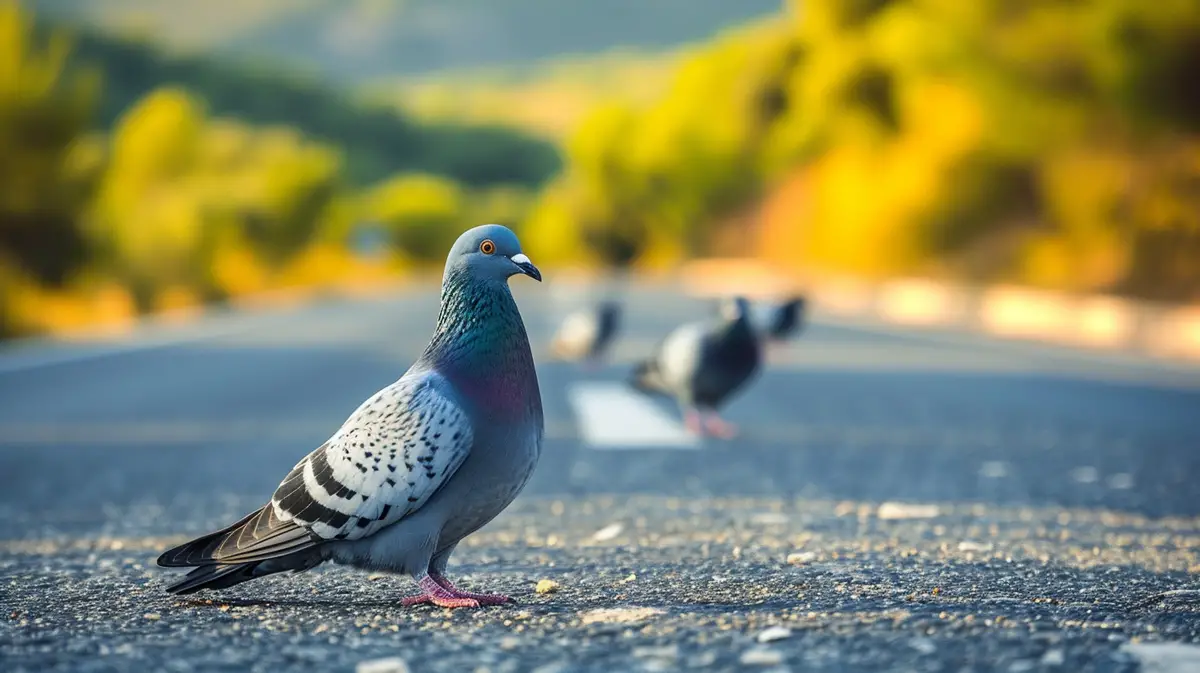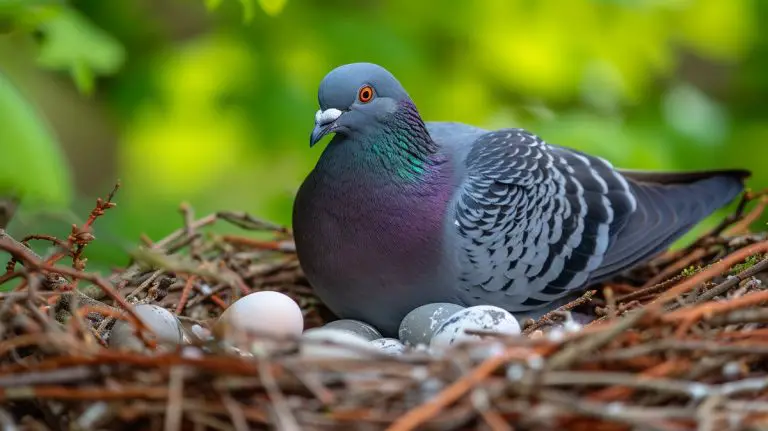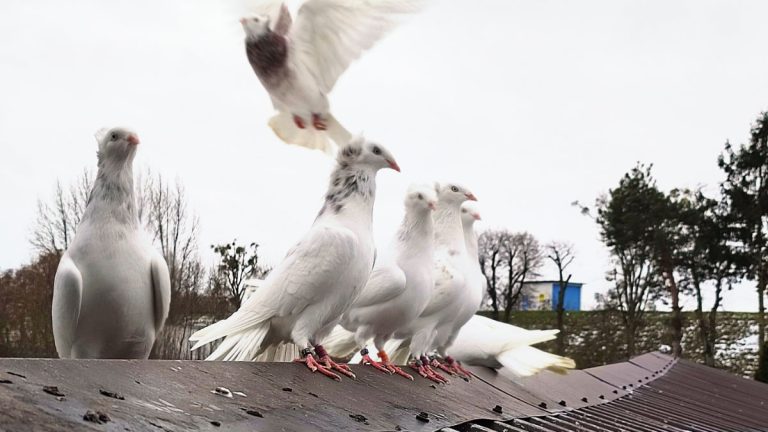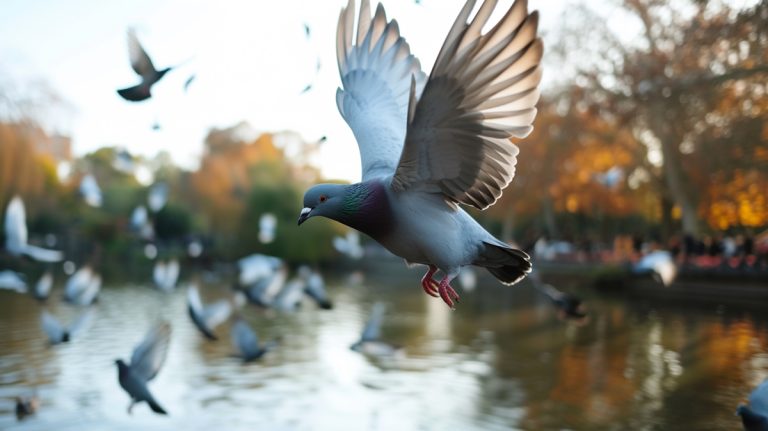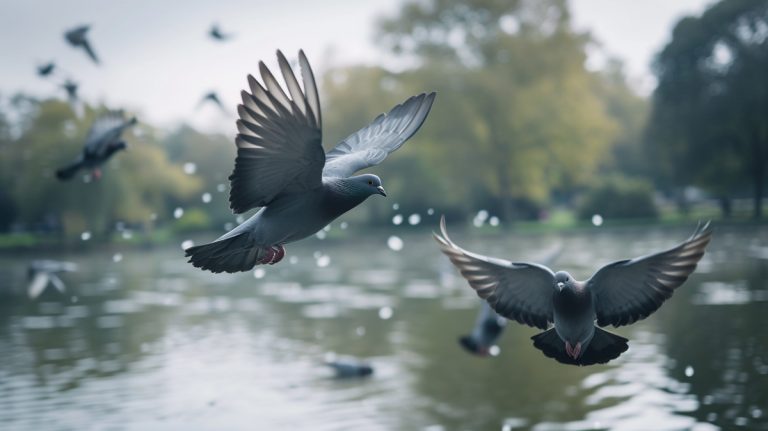Maintaining and Cleaning Your Pigeon Water Feeder
Are you tired of constantly refilling your bird feeders? Well, I’ve got the perfect solution for you – a pigeon water feeder! These innovative devices are designed to provide a continuous supply of fresh water for our feathered friends, without the hassle of constant maintenance. As an avid bird lover myself, I can’t help but rave about the convenience and benefits of using a pigeon water feeder. In this article, I’ll be sharing everything you need to know about these amazing devices, from how they work to the advantages they offer. So, let’s dive in and discover why a pigeon water feeder is a must-have for any bird enthusiast!
How does a Pigeon Water Feeder work?
As an avid bird enthusiast, I’ve always been on the lookout for convenient solutions to enhance the bird feeding experience. That’s why I believe pigeon water feeders are an absolute must-have for any bird lover. In this article, let’s delve into the intriguing working mechanism of these innovative devices.
When it comes to bird feeders, one common issue is the constant need for refilling. That’s where pigeon water feeders come to the rescue. These cleverly designed devices provide a continuous source of water for birds without the need for constant monitoring and refilling.
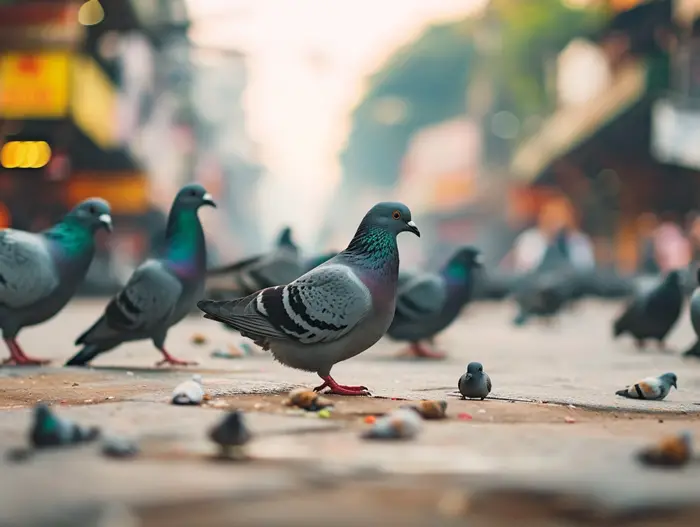
So, how does a pigeon water feeder work? Let’s break it down:
- Built-in reservoir: Pigeon water feeders are equipped with a built-in water reservoir that holds a significant amount of water. This ensures that birds have access to water for an extended period without the need for frequent refilling.
- Gravity-based system: The water in the reservoir is connected to a small, strategically placed trough or basin, typically positioned at ground level. The water flows through a small opening due to the force of gravity, creating a steady and accessible water source for the birds.
- Anti-spill design: Pigeon water feeders are designed to minimize water spillage. They often feature a sophisticated valve system that controls the flow of water, preventing any excess water from overflowing or wasting.
- Easy maintenance: Another advantage of pigeon water feeders is their ease of maintenance. They are designed to be simple to clean and refill, ensuring that the water remains fresh and hygienic for the birds.
By providing a continuous flow of water, pigeon water feeders attract a wide variety of birds, creating a thriving bird-friendly environment. Additionally, the convenient design of these feeders allows you to focus on enjoying the presence of birds rather than constantly refilling traditional bird feeders.
So, if you want to enhance your bird feeding experience and attract a diverse range of feathered visitors, consider investing in a pigeon water feeder. With their innovative mechanism and hassle-free maintenance, these feeders are a game-changer for any bird enthusiast.
The Benefits of using a Pigeon Water Feeder
When it comes to bird feeders, pigeon water feeders offer a great alternative to traditional seed feeders. These clever devices provide a continuous source of water for birds while minimizing the need for constant monitoring and refilling. Here are some of the benefits of using a pigeon water feeder:
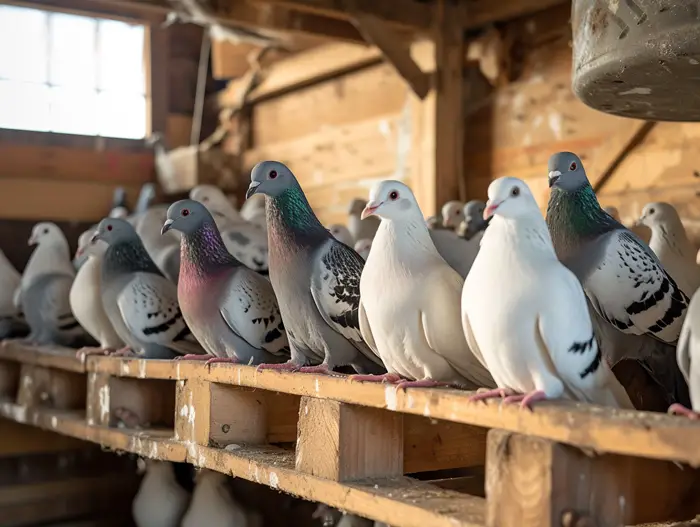
1. Convenience: One of the major advantages of a pigeon water feeder is the convenience it offers. With its built-in reservoir and gravity-based system, this feeder ensures a continuous supply of clean water for the birds. You don’t have to worry about constantly refilling it, giving you more time to enjoy watching the birds visit your feeder.
2. Anti-Spill Design: Pigeon water feeders are designed to minimize spills and ensure that the water remains clean. The anti-spill mechanism helps prevent wastage by keeping the water contained within the feeder. This not only saves water but also reduces the need for frequent cleanings.
3. Easy Maintenance: Maintaining a pigeon water feeder is a breeze. These feeders are designed for easy cleaning and refilling. Most models have removable parts that can be easily washed, allowing you to keep the feeder hygienic and bird-friendly.
4. Attract a Variety of Birds: Pigeon water feeders are not just for pigeons. These versatile feeders can attract a wide variety of bird species. From colorful songbirds to elegant hummingbirds, you’ll be amazed at the feathered visitors that your pigeon water feeder will attract.
5. Enhance the Bird Feeding Experience: By providing a readily available water source, pigeon water feeders enhance the bird feeding experience. Birds rely on water for drinking, bathing, and preening, so having a dedicated water feeder will make your garden a favorite spot for birds to visit.
using a pigeon water feeder has numerous benefits. It offers convenience, easy maintenance, and an opportunity to attract a diverse range of beautiful birds. By investing in a pigeon water feeder, you’ll create a thriving bird-friendly environment and enhance your overall bird feeding experience.
Factors to consider when choosing a Pigeon Water Feeder
When selecting a pigeon water feeder, there are several important factors to consider. These factors will help ensure that you choose the right feeder that meets your needs and provides a continuous source of water for birds. Here are some key points to keep in mind:
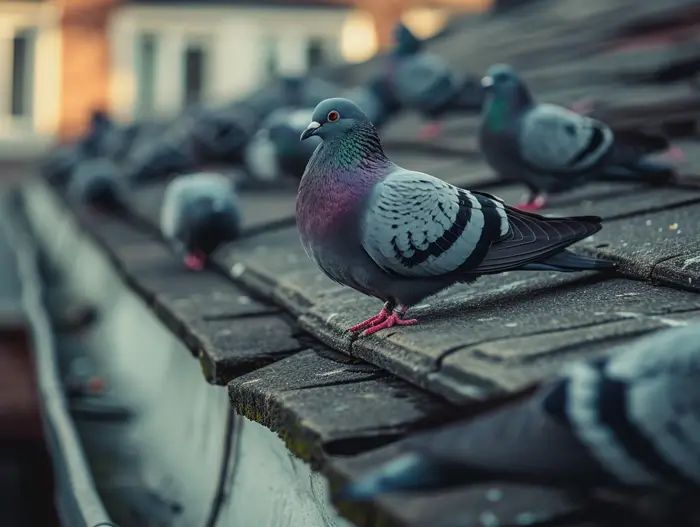
- Durability: Look for a pigeon water feeder that is made from sturdy and durable materials, such as weather-resistant plastic or metal. This will ensure that the feeder can withstand the elements and last for a long time.
- Capacity: Consider the size of the feeder’s reservoir. A larger reservoir will hold more water, reducing the frequency of refills. This is especially important if you live in an area with hot weather or if you have a large bird population.
- Gravity-Based System: Check if the pigeon water feeder utilizes a gravity-based system. This type of system ensures a steady flow of water without unnecessary spillage. It also prevents the water from stagnating, keeping it fresh and clean for the birds.
- Anti-Spill Design: Look for a feeder with an anti-spill design. This prevents water from dripping or splashing out, which can attract unwanted pests and create a mess in your bird feeding area.
- Easy Maintenance: Consider the ease of maintenance for the pigeon water feeder. Look for feeders that are easy to clean and refill. Removable parts or wide openings make it convenient to maintain and keep the water fresh for the birds.
Remember, it’s important to choose a pigeon water feeder that fits your specific needs and preferences. By considering these factors, you can ensure that you provide a reliable and convenient source of water for the birds in your area.
And, with a well-maintained pigeon water feeder, you’ll not only enhance the bird feeding experience but also attract a diverse range of feathered visitors to your backyard.
Tips for maintaining and cleaning your Pigeon Water Feeder
When it comes to keeping your pigeon water feeder in great condition, a little maintenance goes a long way. Regular care and cleaning will ensure that the feeder continues to provide a reliable source of water for the birds in your area. Here are some helpful tips for maintaining and cleaning your pigeon water feeder:
- Regular Inspection: Take a few moments each week to inspect your pigeon water feeder. Look for any signs of wear or damage, such as cracks or loose parts. If you notice any issues, it’s important to address them promptly to prevent further damage.
- Cleaning Schedule: Establish a regular cleaning schedule for your pigeon water feeder. Depending on the usage and weather conditions, you may need to clean it every week or every few weeks. This will help prevent the buildup of dirt, debris, and algae, which can affect the quality of the water.
- Easy Disassembly: Most pigeon water feeders are designed for easy disassembly, making the cleaning process simple and efficient. Take apart the feeder according to the manufacturer’s instructions, and clean each component separately. This will ensure a thorough clean and remove any trapped dirt or grime.
- Use Mild Detergent: When cleaning your pigeon water feeder, use a mild detergent or soap specifically formulated for bird feeders. Avoid using harsh chemicals or bleach, as these can be harmful to the birds. Rinse each part thoroughly with clean water to remove any residue.
- Inspect and Replace Parts: While cleaning, take the opportunity to inspect the feeder’s parts. Check the reservoir, valves, and hoses for any signs of damage or wear. If you notice any issues, contact the manufacturer for replacement parts. Keeping your pigeon water feeder in good repair is essential for its proper functioning.
By following these tips, you can ensure that your pigeon water feeder remains in optimal condition, providing a reliable and convenient water source for the birds in your area. Remember, regular maintenance and cleaning are key to the longevity and effectiveness of your feeder.
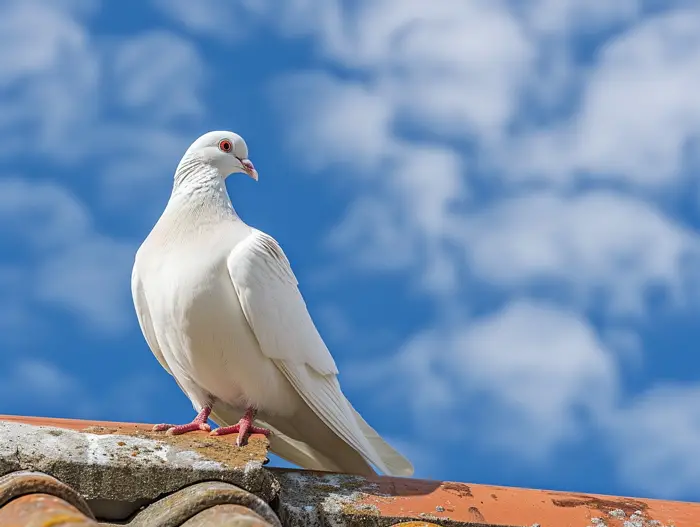
To sum up:
- Regularly inspect your pigeon water feeder for any damage.
- Establish a cleaning schedule and stick to it.
- Disassemble the feeder for a thorough clean.
- Use mild detergent and rinse thoroughly with clean water.
- Inspect and replace any damaged or worn parts.
Frequently Asked Questions
How often should I clean my pigeon water feeder?
Cleaning your pigeon water feeder regularly is crucial to maintain its effectiveness and provide clean water for the birds. I recommend cleaning it at least once a week. However, if you notice any signs of dirt or debris accumulating, it’s best to clean it more often. Regular inspections will help you determine the cleaning frequency needed.
How should I clean my pigeon water feeder?
To clean your pigeon water feeder effectively, follow these steps:
- First, disassemble the feeder carefully. This will allow you to access all parts and clean them thoroughly.
- Use a mild detergent and warm water to clean every part of the feeder, including the reservoir, base, and any removable components.
- Scrub the surfaces gently using a soft brush or sponge to remove any dirt, algae, or debris.
- Rinse all parts thoroughly with clean water to remove any remaining soap or residue.
- Allow the feeder to air dry completely before reassembling it and refilling it with fresh water.
Can I use bleach to clean my pigeon water feeder?
While bleach may be effective at disinfecting the pigeon water feeder, it’s best to avoid using it. Bleach can be harmful to birds if not rinsed off completely. Instead, opt for a mild detergent and rinse the feeder thoroughly with clean water to ensure the safety of the birds.
What should I do if I notice any damage to my pigeon water feeder?
If you notice any signs of wear or damage to your pigeon water feeder, it’s important to address it promptly. Inspect the feeder regularly for any cracks, leaks, or missing parts. If you find any issues, consider repairing or replacing the damaged components to maintain the feeder’s functionality. Neglecting repairs can lead to further damage and may put the birds at risk.
The Importance of Regular Maintenance
Proper maintenance and cleaning of your pigeon water feeder are key to ensuring the well-being of the birds and the longevity of the feeder. Regular inspections, cleaning, and repairs will help prevent the accumulation of dirt, algae, and mold, which can be harmful to the birds. Additionally, a clean feeder will attract more birds and provide them with a reliable source of fresh water.
Conclusion
Maintaining and cleaning a pigeon water feeder is essential to ensure a reliable source of water for birds. By regularly inspecting the feeder for wear or damage, establishing a cleaning schedule, and using mild detergent for a thorough clean, we can create a safe environment for our feathered friends. It is important to rinse the feeder thoroughly with clean water and inspect and replace any damaged parts to maintain its functionality.
Regular maintenance and cleaning prevent the accumulation of dirt, algae, and mold, which can be harmful to birds. By keeping the feeder clean, we can attract more birds and provide them with a healthy source of hydration. Remember to clean the feeder effectively and avoid using bleach, as it can be harmful to the birds.
By following these tips and taking the time to care for our pigeon water feeder, we can create a welcoming space for birds and contribute to their well-being. Let’s continue to enjoy the beauty of these magnificent creatures while ensuring their safety and comfort.
